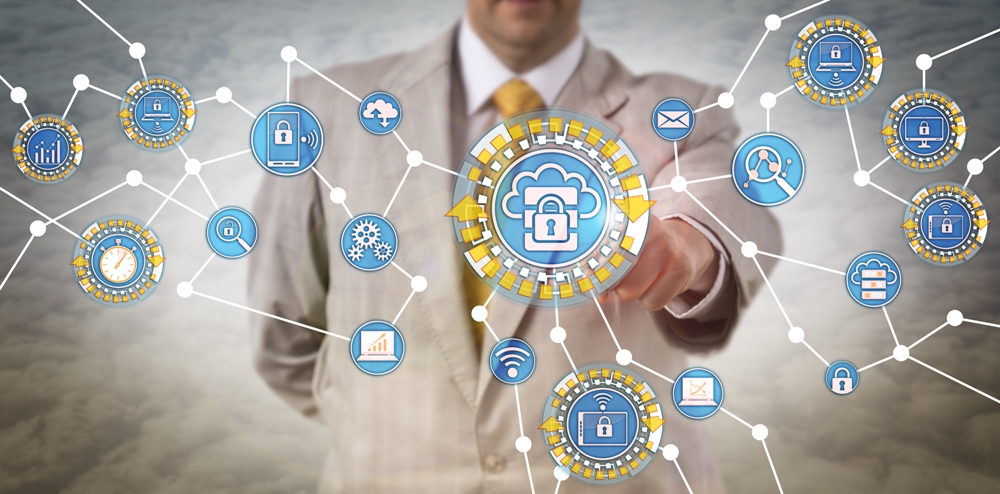
The healthcare industry is continuously looking for ways to incorporate new technologies in daily practices as a means of improving patient care. One of the most recent trends has to do with how the Internet of Things (IoT) can improve experiences between patients, their caregivers, and the countless professionals working behind the scenes to manufacture medical instruments, pharmaceuticals, and other critical healthcare essentials.
Making use of this technology raises the level of communication across the healthcare industry, but it also allows patients to play a more active role in their care plans. While some of the innovations listed here are already in use, others are on the way:
Smart Factories
We don’t often think of factories when we think of healthcare, but manufacturing and production are a big part of providing medical treatment to patients around the world. Whether it’s a surgeon’s scalpel, an anesthesiologist's laryngoscope, or the prescription medicine a person takes to stave off a serious condition, it originates from an assembly line somewhere. With this in mind, the development of IoT technology in the manufacturing sector has been crucial to improving healthcare.
Optimizing IoT systems implemented in medical-related manufacturing also helps to reduce healthcare costs. To achieve this, a factory uses Leading2Lean software providing real-time actionable data and recommendations in an IoT setting. This allows workers to find the causes of production bottlenecks and make improvements accordingly. The result is more cost-effective systems, which mean lower production costs and consequently lower product prices.
Smart Pills
When we think of IoT technology, we often think of wearable devices or in-home equipment, but a coming innovation in medicine will have us swallowing IoT devices. Several pharmaceutical companies are currently competing to be the first company to introduce an edible IoT smart pill. The devices are intended to provide a heightened degree of accuracy in recording and reporting biological data.
The pill itself will be dissolved by stomach acids, but it will transmit signals to sensors worn on the outside of the body. The sensors will then relay the data to a smartphone app that will help patients, doctors, and pharmaceutical companies monitor and regulate medication dosages. This will help reduce side effects and improve the effectiveness of medications.
More Accurate Diabetes Management
While continuous glucose monitors are already in use, an improvement to the system will soon hit the market. Invented by Dana and Scott Lewis, the system relays data collected by the continuous glucose monitor (CGM) to an external computer, which regulates the insulin pump correspondingly. The system is designed to provide more accurate insulin management than patients can do manually. Roche bought the rights to the implantable system from the Lewis family in 2016.
Blood Pressure Monitoring
Using Bluetooth technology, patients and doctors can now monitor blood pressure more accurately. Paired with smartwatches or smartphone apps, this new IoT in healthcare innovation enables patients to be more precise in taking medication for hypertension. It also allows doctors to monitor data to determine how effective medications are in regulating blood pressure.
The IoT Takes on Mental Health
While still in the testing phase, it won't be long before IoT technology is helping patients and caregivers in treating mental health disorders. Takeda is currently testing an Apple smartwatch app that monitors and analyzes an individual's mood. The 30 test subjects taking part in the study suffer from a major depressive disorder or MDD and data is sent to a computer server for assessment by the researchers. Once approved, this technology may play a major role in helping to prevent depressive episodes and other mental illness symptoms.
Additionally, there are already some apps that monitor sleep cycles, physical activity, and diet. These factors all play a part in the overall emotional health of an individual, so the new apps may play a part in helping to relieve stress and the symptoms of illnesses like depression and anxiety. Tracking this type of data will help individuals play a more active role in controlling their moods and emotional health.
As artificial intelligence improvements help to evolve the functionality of IoT devices, we can see this technology applied to other aspects of healthcare. Even existing devices are likely to improve vastly in a short period of time. As we apply more IoT technology to our medical care, it will become easier for doctors to diagnose medical problems sooner. As we know, early detection is often essential in curing or controlling conditions such as diabetes, cancer, and heart disease.